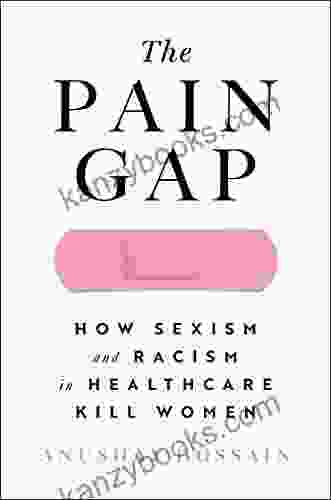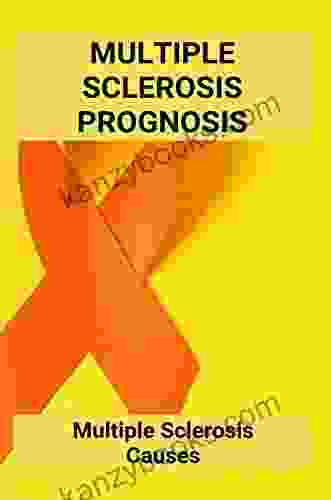: The Silent Struggle of Postpartum Mental Illness
Postpartum mental illness (PPMI) affects a significant proportion of women after childbirth, yet it remains largely misunderstood and often goes unnoticed. Advocates play a crucial role in raising awareness, breaking down stigma, and providing support for women suffering from these conditions. This guide aims to empower advocates with the knowledge, skills, and resources needed to effectively navigate the complex landscape of PPMI and advocate for the well-being of affected women.
Understanding Postpartum Mental Illness
PPMI encompasses a range of conditions that can develop during or after pregnancy, including:
5 out of 5
| Language | : | English |
| File size | : | 1609 KB |
| Text-to-Speech | : | Enabled |
| Screen Reader | : | Supported |
| Enhanced typesetting | : | Enabled |
| Word Wise | : | Enabled |
| Print length | : | 247 pages |
* Postpartum depression (PPD): A mood disFree Download characterized by persistent sadness, hopelessness, and loss of interest in activities. * Postpartum anxiety (PPA): An anxiety disFree Download that can manifest as excessive worry, panic attacks, or insomnia. * Postpartum obsessive-compulsive disFree Download (PPOCD): Intrusive thoughts and repetitive behaviors related to the baby or family. * Postpartum psychosis: A rare but severe condition that can involve delusions, hallucinations, and disorganized thinking.
Recognizing the Signs and Symptoms
Early detection and intervention are crucial for effective management of PPMI. By understanding the common signs and symptoms, advocates can play a vital role in encouraging women to seek help:
* Persistent mood changes, such as sadness, irritability, or anxiety * Loss of interest in activities that were previously enjoyable * Difficulty bonding with the baby * Excessive worry or fear * Intrusive thoughts or images * Sleep disturbances, including insomnia or hypersomnia * Changes in appetite or weight * Difficulty concentrating or making decisions * Physical symptoms, such as headaches, body aches, or gastrointestinal problems
Advocacy Strategies for Empowered Advocates
Empowered advocates can effectively support women with PPMI by employing a range of strategies:
1. Raising Awareness and Breaking Down Stigma
* Educate others about PPMI, its causes, symptoms, and treatment options. * Challenge misconceptions and stereotypes that perpetuate stigma. * Utilize social media, online platforms, and community events to spread awareness.
2. Providing Emotional Support
* Offer a listening ear and a shoulder to cry on without judgment. * Validate women's experiences and let them know they are not alone. * Encourage them to seek professional help from a healthcare provider or mental health professional.
3. Facilitating Access to Resources
* Compile and share a list of local resources, such as support groups, therapists, and support services. * Assist women in navigating the healthcare system and connecting with appropriate professionals. * Advocate for increased funding and access to specialized PPMI treatment programs.
4. Advocating for Policy Changes
* Support policies that provide paid leave and postpartum healthcare coverage. * Advocate for better screening and early intervention protocols. * Promote policies that address the social determinants of health that contribute to PPMI risk.
5. Empowering Women Through Education
* Provide women with information about PPMI, its symptoms, and treatment options. * Empower them to make informed decisions about their health and well-being. * Facilitate workshops or support groups where women can share their experiences and learn from each other.
Collaborations and Partnerships for Effective Advocacy
Collaboration and partnerships are essential for maximizing the impact of advocacy efforts:
* Partner with organizations specializing in postpartum health and mental health. * Join forces with healthcare providers, clinics, and hospitals to promote screening and early intervention. * Engage with researchers and academics to support evidence-based practices and policies. * Build alliances with community groups, advocacy organizations, and policymakers.
Self-Care for Advocates
Advocating for others can be emotionally demanding. Advocates must prioritize their own well-being to maintain their energy and effectiveness:
* Set boundaries and practice self-care techniques. * Seek support from other advocates or mental health professionals if needed. * Remember that self-care is not selfish, but rather essential for sustaining long-term advocacy efforts.
Inspiring Advocacy Stories
The following stories showcase the transformative power of advocacy for women with PPMI:
* Sarah's Story: Sarah struggled with severe PPD after the birth of her second child. With the support of an advocate, she accessed therapy and medication, gradually regaining her health and happiness. * Maria's Story: Maria, an immigrant woman, faced cultural barriers in accessing postpartum mental healthcare. An advocate helped her overcome these obstacles and connect with a culturally sensitive therapist. * Emily's Story: Emily's advocate played a crucial role in getting her on a paid leave program, allowing her to focus on her recovery from PPOCD.
These stories demonstrate the profound impact that advocates can have on the lives of women with PPMI.
: Empowered Advocates, Empowered Women
Empowered advocates are essential for creating a society where women with PPMI are supported, understood, and treated with dignity. By raising awareness, providing emotional support, facilitating access to resources, advocating for policy changes, and empowering women through education, advocates play a transformative role in improving the lives of countless women and their families.
Remember, advocating for women with PPMI is not only about providing support but also about empowering them to live full and healthy lives. Together, we can break down the barriers of stigma and create a society where every woman has access to the care and support she needs to thrive after childbirth.


























































































